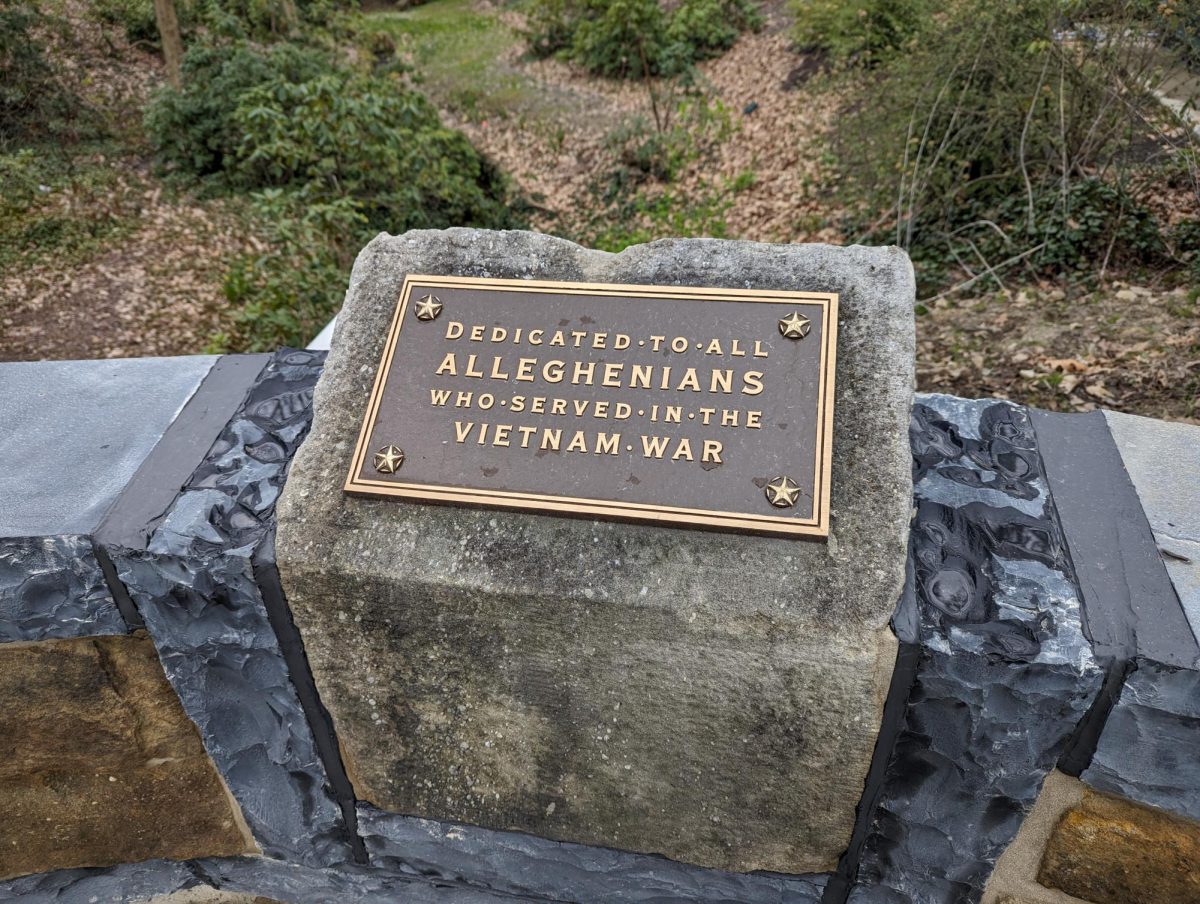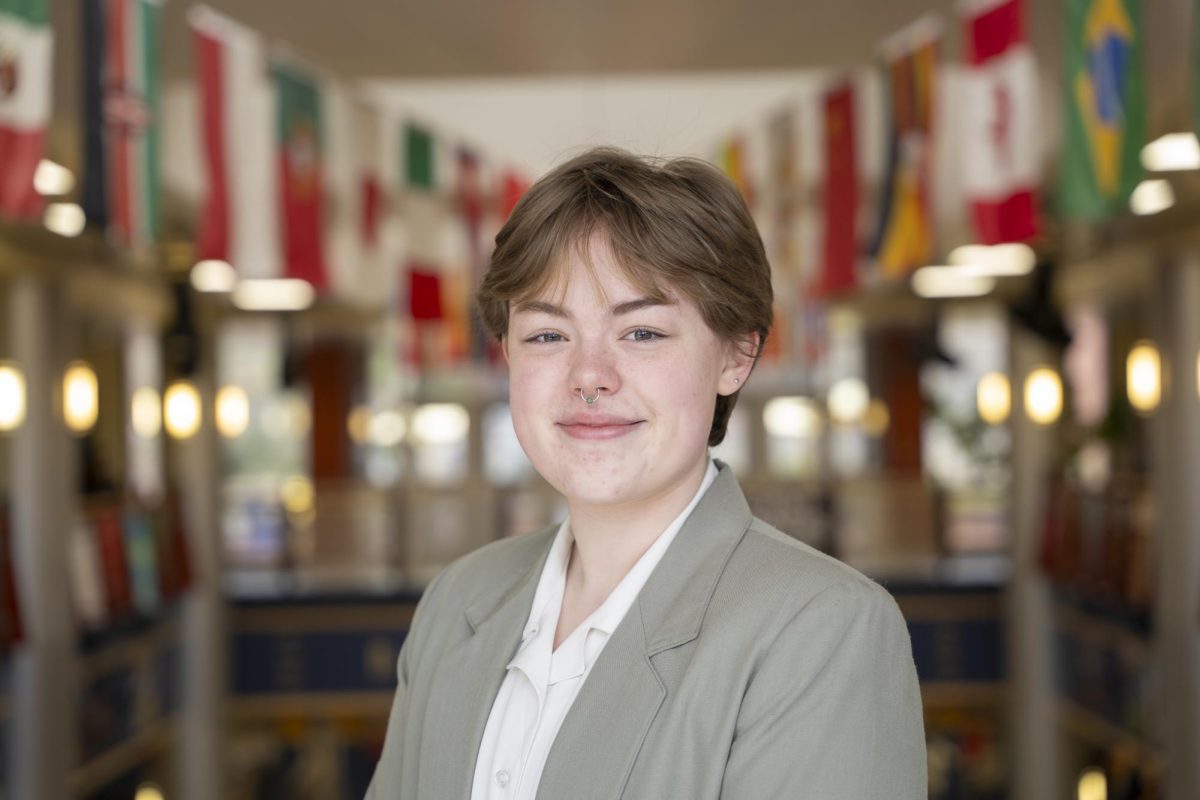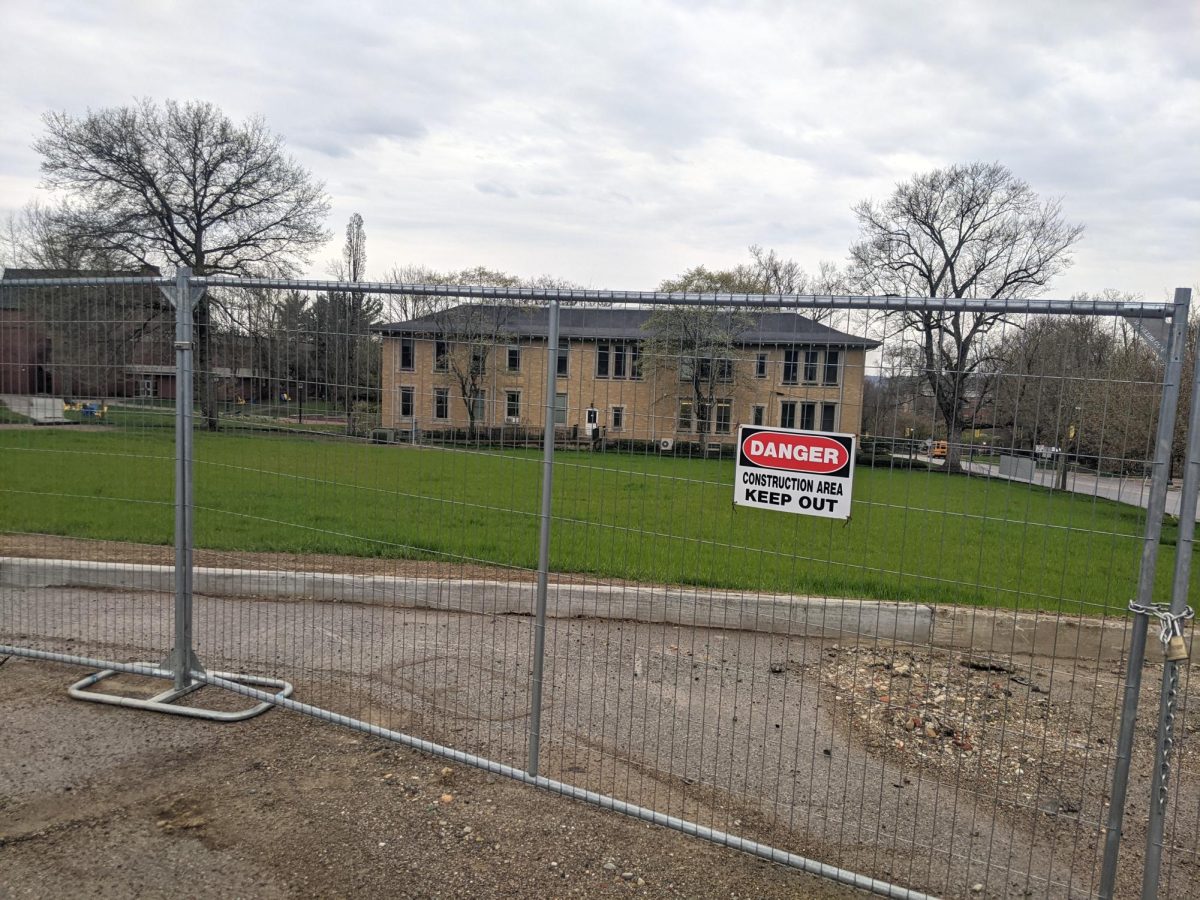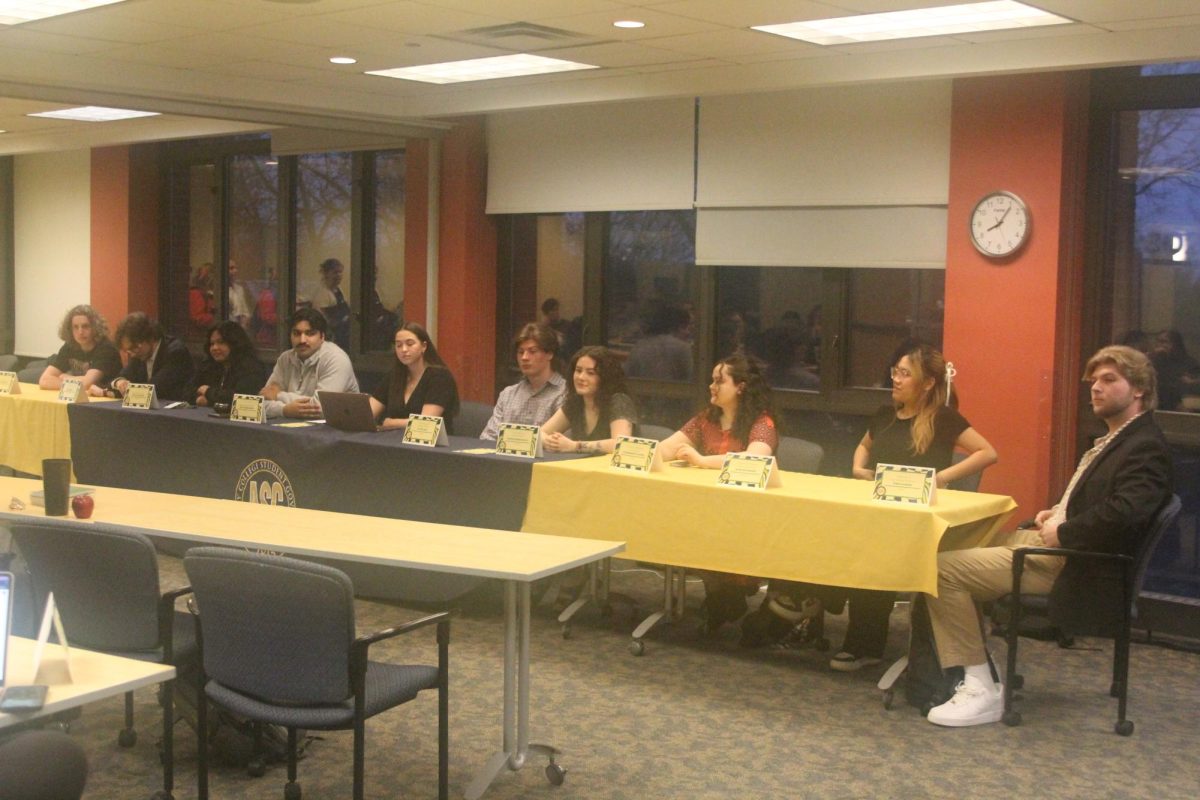Allegheny College students, Meadville citizens and local religious leaders gathered Saturday morning at the “Greening Faith” workshop to explore the role of religion in ecology and current environmental issues.
The event was sponsored by Allegheny College in partnership with Stone United Methodist, Meadville Unitarian Universalist and First Presbyterian Churches. The audience consisted of mostly community members and some students, all of whom were eager to participate and share their views on the topics discussed.
Students from Chaplain Jane Ellen Nickell’s Religion and Ecology class, a course offered by the Environmental Science department, led the workshop with presentations that covered the role of religion in the relationship between humans and nature, ways that congregations can work towards being more environmentally friendly and specific ways in which Meadville congregations can work towards an environmentally sustainable future.
A major focus of the workshop was the idea that environmental stewardship is ethically inspired and since ethics are often instilled by religion, religion can be an important part of caring for the environment.
Anulekh Venkatram, ’13, a member of the Religious Life Council at Allegheny, described her view of environmental responsibility. She thinks that everything on Earth is a part of nature. Since nature takes care of humans, humans, in return, have a responsibility to care for the environment, according to Venkatram.
Religion and ecology student, Annie Delaney, ’12, said the class has changed the way she looks at her own religion and the way she sees nature.
“Religion in the environment is more about human stewardship and seeing God in nature rather than in an institution,” she said.
The conversation wound its way from defining the role of humans in nature and religion to taking environmental action. Nickell emphasized that all humans, religious or not, need to take immediate action against climate change. She described service learning as a great way to care of the Earth because it encourages people to learn actively while actually making a difference.
“With the little changes we make,” Nickell said, “we return to a more simple life-style where we we enjoy God’s bounty and live more in the world.”
Community members talked about how environmental issues could also be defined as religious issues. An example of this is industrial farming practices. A community member talked about industrial farming as a way of looking at creatures as commodities rather than as God’s creatures -which should be cared for.
Students presented simple tasks that community members, as both individuals and as congregations, can take to work towards a more environmentally sustainable future. These tips included installing compact flourescent light bulbs, using geothermal heating and buying food locally. Students gave specific examples of local companies that install photovoltaics (solar panels) and area farms where food can be purchased.
Congregations, as described by one of the presentations, have a lot of influence within communities. Congregations are able to take direct community action and they are able to educate. The workshop emphasized the important roll churches have, to tell other people and other congregations about how to make their communities more environmentally sustainable.
The event ended with a lunch of locally grown food and was followed by an Earth Day Community Service activity.
By ADRIENNE NELSON






